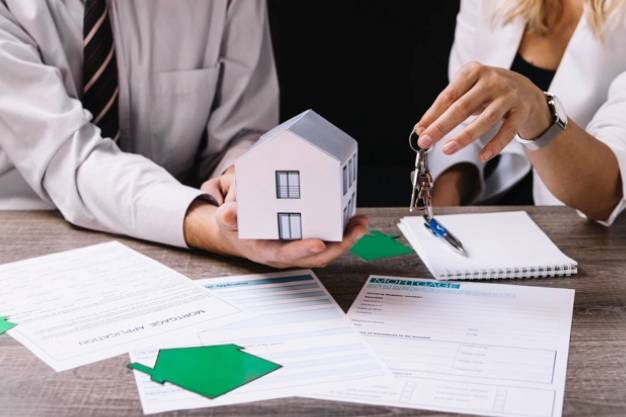What does a real estate exhibition have to offer?
December 2021
Tired of hopping from one real estate site office to another? Expos could be a better option as these are a point of convergence for projects, loans and prices. Of course, one should not ink a deal in a first expo visit. Exhibitions offer first-time investors a good dry run before they take the final decision. There is more choice, especially if projects from other cities or micro-markets are showcased. A word of caution: an expo comes with as much fanfare as facts. So, get a firm hold of the facts and do not get swayed solely by promotional offers, freebies or other discounts on offer. Read on to make a wiser decision.
Amid multiple options available at an expo, key parameters such as price and configuration of apartments help narrow down choices. Mode of financing, location and infrastructure are others.
Type/size: Most buyers visit expos with certain choices. Some may upgrade to larger flats if they get a good discount, or if they opt for lower-cost properties in peripheral locations.
Price: For those who do not want to negotiate, an expo may offer straight discount deals. The price per sq. ft at expos (“offer price") is usually a few hundred rupees lower than the market rate. While such offers last while the expo is on, or for 7-10 days after the event, a hurried decision won’t help. Check the market price from other sources. Also factor in cost elements such as preferential location.
Mode of financing: While a bank loan is an obvious option, developers often offer schemes such as ‘book now, pay later’—also called tripartite payment schedule. These schemes can significantly influence the final amount that you pay for the house, irrespective of the per sq. ft price agreed upon. Then there are bundled offers in which projects are pre-approved by certain banks. This means that the loan is tied up faster, as the due diligence is already done.
In the ‘book now, pay later’ schemes, the developer allows you to pay a certain percentage of the total cost (or the booking amount) then, and the rest on possession. The developer agrees to pay the equated monthly instalment (EMI) on the buyer’s loan until possession. While this sounds attractive, there are caveats.
• Need for adequate funds: This is critical as the payment schedule will involve only two lump sum payments—one at the time of booking and the other at the time of possession. Thus, you must steadily build up a cash reserve to meet the payments.
• Developer has to pay bank regularly: In tripartite schemes, the developer agrees to pay the EMIs to your bank until the ready flat is handed to you. But if he misses payments for whatever reasons, the bank will hold you liable for the payments due with interest because you have availed the loan and not the developer. So, the onus of repayment lies on you. If developer defaults, chasing him will be difficult. So, it is important to check that the developer has a proven track record in successfully executed projects under such schemes.
Location: With more projects coming up in distant suburbs, separate expos are being held at such locations, which give you wider options within a specific micro-market or price bucket. For example, an expo in Thane will also feature properties in areas such as Navi Mumbai, Dombivili or Badlapur.
Alternate deals: While apartment or township projects are common, an expo also offers investments in land plots, vacation homes, condominiums, cottages, and others. As these are usually located in the city’s peripheries, you may land a good deal, if you know how to spot one. Such deals may be attractive for cash-rich investors.
Dos and don’ts
Keep an open mind. It is always good to have a wide choice of projects that comprise large and mid-size/local and pan-India developers. Don’t go by the name alone—even a relatively smaller project can be worthwhile. The same goes for choosing a financier.
Even if a bank or a housing finance company (HFC) has approved the project, apprise yourself of the technical assessments such as land quality and title. Choosing a lender that has approved the project may be easy, but check with other lenders, too, for lower interest rates.
While an expo may not entail much of immediate paperwork, keeping key documents—salary slips, bank statements and identification papers—handy may help those who want to finalise a deal.
Some developers announce ‘soft-launches’ in a bid to shore up liquidity for projects where construction hasn’t commenced. These may carry lucrative discounts, but delivery can be an issue. Go for these only if you have a strong risk appetite and the additional financial bandwidth.
While freebies are the icing, they alone don’t make the cake. So, even as you take note of the various amenities that a particular project offers, make a decision based on harder parameters such as the size of apartment, quality of fittings, location, and others.
An expo is just the first step to buying a house. If you end up with a good project, or even a shortlist of properties, be sure to visit the project site. Most developers arrange site visits for interested buyers, which will help you check out the project.
Whether you buy through an expo or otherwise, regular monitoring is needed. Try to ensure that the developer offers a realistic completion date. If everything goes right, you may walk into an expo, and walk out with your dream home.
Also read: Real Estate and Money Supply
Back to All Thane Real Estate Resources, Thane Property News and Articles
Share This:
To Know More about Property Investment In Thane Visit Real Estate Thane CREDAI MCHI Thane Unit
Source: www.livemint.com


